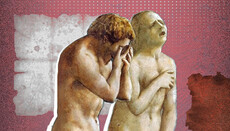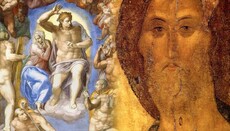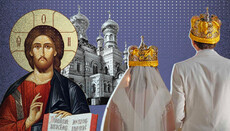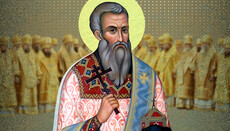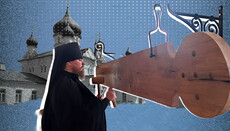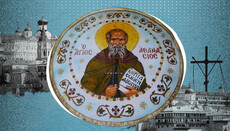“Picasso”: An Accident and a Night of Prayer
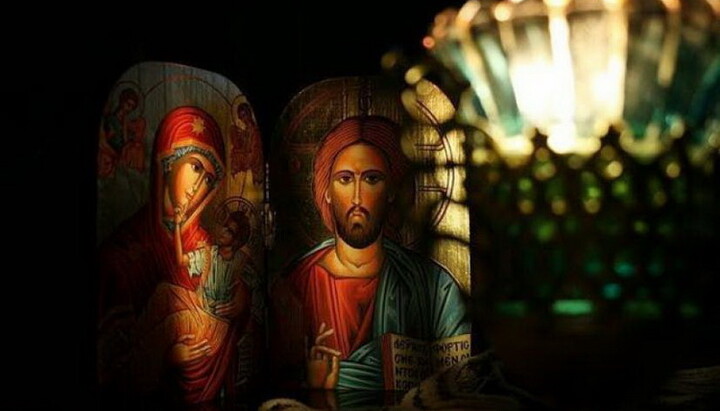
Excerpts from A. Vlasov’s book Picasso. Part One: The Slave. Episode 3.
Time: 1989
Place: Kyiv
Characters: Misha Kaminsky, 14 years old, and his family
About a year after his fateful encounter with Kirill, altar boy Misha faced a serious temptation: he stopped understanding why one needed to pray so much. He did not reject prayer outright, nor church services, nor faith itself. He still lived with a sense of God’s presence, though little by little that sense grew dimmer. He simply thought: If God is always with us, why must I stand before the icons morning and evening, reciting long and endless prayers?
Of course, they weren’t endless in truth. They only seemed so, now that he wanted more and more to linger outside with his friends. His classmates had gradually stopped mocking him as “priest’s son” and had begun to welcome him into their circle. His father noticed his reluctance to pray and tried to guide him back onto the “right path.” The words were sound, logical—but powerless against the new and mighty force stirring within Misha’s heart and body.
With it crept in doubt. Not in the great truths of Christianity, not yet, but in the lives of the saints. Above all, the stories of saints who prayed whole nights without rest struck him as impossible. Misha could hardly stand through twenty minutes of evening prayers at home. Yes, he still crossed himself sincerely morning and evening, asked God’s blessing for the day, thanked Him at night—but with growing struggle.
And so half a year passed, in inner battle.
* * *
On New Year’s Eve of 1989, calamity came to Misha’s family.
They did not celebrate New Year’s, since it fell during the Nativity Fast. But at the suggestion of the parish warden, they had begun in recent years to gather at church close to midnight, serving a prayer service with an akathist: thanking God for the year past, seeking His blessing for the year ahead.
That year Misha’s father, Archpriest Alexander, drove to the service with his two older sons, Misha and Sergei. Their mother stayed home with the younger children. The service was joyful, fervent: the night, the squeak of snow, the faint festivity of the calendar’s turn, the glow of candles in a half-empty church. The faithful gathered were only the dedicated, the “zealots,” as Father Alexander jokingly called them. Their prayers rose with warmth and devotion.
When all was done, father and sons set out home. As usual, the boys dozed off in the backseat of their father’s Zhiguli—an old “kopeika,” as the model was nicknamed.
Near home, just before their turn into the courtyard, they passed a drunken crowd by the bus stop. One man, hardly able to stand, lurched into the road straight in front of their car.
Father braked sharply and swerved left. The car skidded—and a Volga taxi barreling in the next lane slammed into the driver’s side door. Like most Soviet drivers, Father Alexander had not bothered with a seatbelt…
Misha and Sergei barely understood what happened. Half asleep, they were pulled from the wreck unharmed. But their father…
The ambulance arrived quickly, whisking him away to the Institute of Neurosurgery with suspected traumatic brain injury. Their mother, breathless and disheveled, rushed there as soon as she heard. In the admitting ward she seized the first man in a white coat and screamed:
“What about my husband?!”
He barked at her, almost cursed, and walked off down the corridor. She wept, frantic, until at last a kindly older nurse soothed her:
“He’s alive. They’re operating. Pray, child.”
“Yes… yes!” she gasped, suddenly ashamed it had not occurred to her before.
Right there in the waiting room she fell to her knees, bowing, sobbing aloud:
“Lord, help! Mother of God, do not forsake!”
A stern doctor stormed in.
“What is this disgrace? Woman, stop this at once!”
But she heard nothing.
The nurse came to her defense. “It’s the matushka, the priest’s wife,” she whispered.
“Ah…” The doctor sighed, shook his head, and left.
By morning, exhausted from hundreds of prostrations, she was told only:
“He’s in a coma. Very grave. We must wait.”
They handed her his bloodstained cassock, shoes, and cross. Relatives carried her home by force.
Bleak days followed—waiting, praying, hoping. Mother Natalia composed herself and prayed no longer with hysteria, but with quiet trust. Every day she went to the hospital, every day received the same answer:
“Condition stable, but critical.”
Relatives and friends filled their flat at all hours, helping with chores, caring for the children. The little ones, Andrei and Olga, could not grasp the tragedy, only called for their father and cried. The older two, Misha and Sergei, prayed akathists through the night, trembling at the thought of what might come.
“No, father cannot die… Impossible… How could it be?”
Their once cheerful, noisy home grew hushed, voices muted to whispers.
Christmas Eve came—January 6. According to the Church’s rule, the morning service was long: Royal Hours, Vespers, and Liturgy.
Mother Natalia gathered her children and said, holding back tears:
“Father would want us all to go.”
It sounded to Misha like the words one says of the dead. Weakly he asked:
“Father?…”
“Still the same. Stable but critical,” she answered, repeating the doctors’ tone, and forced a smile.
The Liturgy was served by Father Anatoly, the assistant priest. With fervor he prayed for “the servant of God, Archpriest Alexander,” urging the faithful to do the same. Afterward, Mother Natalia went to the hospital. The younger children went home with relatives, while Misha and Sergei stayed behind to tidy the church and prepare it for the evening Nativity service.
At the hospital, no change.
That evening, the church filled. Whispered news of Father Alexander spread among the parishioners. Even the Christmas carols sounded mournful.
After the service, against all persuasion, Mother Natalia went again to the hospital. She felt sure: if ever a miracle were to happen, it would be this holy night.
Breathless, she asked the duty nurse:
“How is Kaminsky?”
The doctor on call appeared.
“They keep asking about Kaminsky,” the nurse nodded toward her.
The doctor sighed.
“Woman, why do you come ten times a day? We told you—no change. Go home till tomorrow.” He softened slightly. “Understand—miracles don’t happen. If he wakes, he wakes. If not… he won’t. It’s a severe case.”
At home, Aunt Galya, plump and elderly, had brought the children back from church. They ate kutia in silence and dispersed. Mother returned, weary, saying only:
“No change.”
She and Aunt Galya sat whispering in the kitchen, unwilling to sleep.
Misha, exhausted, longed for bed. After evening prayers with Sergei, he waited for his turn to brush his teeth. From the kitchen he heard Aunt Galya’s words:
“Tomorrow is the seventh day. I know—it’s decisive. If he doesn’t wake by then, that’s it. No chance. A doctor told me so. The seventh day decides it all. Either… or. So brace yourself.”
Misha felt a lump choke his throat.
It can’t be… Father can’t die…
He slipped back to his room, fell to his knees before the icons, whispering:
“Lord, save my daddy! Lord, have mercy! Holy Mother of God, help us!”
Sergei came in, alarmed.
“What’s wrong, Misha?”
“Father might die tonight,” he answered.
Sergei knelt too, and prayed. That was the last thing Misha noticed. After that he heard and saw nothing. His whole being dissolved into one cry: Lord, have mercy on my father! At first he repeated the words endlessly; then they blurred into one; then even words vanished, leaving only prayer itself—mind and heart lifted to God, with one unshakable certainty: GOD HEARD HIM.
* * *
When Misha sobered up, sunlight was streaming through the window. Beside him, Sergei had collapsed asleep, still kneeling, forehead pressed to the carpet. The clock ticked on the wall. Misha went to the window and exclaimed in wonder:
“Mama! Look! The snow—so white!”
But Mama was not home. She was at the hospital, facing the doctor, breathless with hope.
This doctor was far cheerier than the night before.
“Your priest woke up,” he said. “I told you, no miracles. Either he comes out of the coma, or he doesn’t. He did. That’s all. But—” he raised a hand to check her rush of joy—“not yet. You can’t see him.”
* * *
The Kaminsky family arrived late to the Nativity Liturgy. But the news they brought filled the church with such radiant joy that it seemed all of Kyiv could hear them singing:
“Thy Nativity, O Christ our God, hath shone upon the world the light of wisdom; for by it those who worshipped the stars were taught by a star to adore Thee, the Sun of Righteousness, and to know Thee, the Dayspring from on high. O Lord, glory to Thee!”
That day, Misha understood how one could pray through the whole night.
To be continued…
The previous episode of the book is available here.
